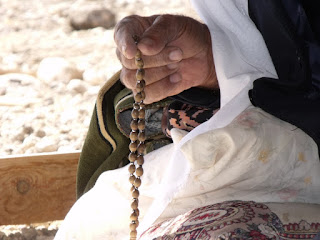As Kofi Annan said, gender equality is the key to development. All NGOs have a gender angle and most projects on the ground will have women's empowerment as a key aim. This is fabulous, and I've seen it for myself. Women who have been previously silenced, ignored, abused or redundant have been given the opportunities and the tools to be part of bettering their communities and building a better future. They have been given pride, escape and healing and this will have an immeasurable impact on the hopes of future generations.
But the more I see, hear and read about conflict zones; regions that have suffered traumatic events and great loss through violence or natural disasters, I start to wonder about the men... I wonder if working with women is an easier, more natural task? You get them together, bond them as a sisterhood, encourage their communication and help them to deal with feelings. You give them skills they have never had and for the first time they have become someone.
For men who have suffered through war, been victims of regimes and themselves been damaged the solution seems less clear. There are swathes of men who are angry and broken, had their purpose, dignity and pride taken from them. They might come from tribal, patriarchial communities whose women are now rising up. I don't think support groups, counselling sessions and sewing lessons would do much for these men.
Of course, I'm not suggesting that development work is all female-centric. Work with youth and whole communties of both genders goes on and is bringing great transformation. But I worry about the angry men. What do we do for them to be part of breaking the cycles of domestic violence, rape and crime?
Thursdays in Black is staunchly about gender equality, and women's rights form just one part - albeit a very big one. But if we don't stand alongside the hurting men we are only tackling half of the problem.
 On a final note, bringing my thoughts back to International Women's Day today, I want to celebrate the men who fight for gender equality. Those who courageously and counter-culturally work to improve the lives of women and challenge communities to move towards equality. I believe that these men are not only incredible, but key in reaching the masses of men who need healing and hope, setting a powerful example and putting their necks on the line!
On a final note, bringing my thoughts back to International Women's Day today, I want to celebrate the men who fight for gender equality. Those who courageously and counter-culturally work to improve the lives of women and challenge communities to move towards equality. I believe that these men are not only incredible, but key in reaching the masses of men who need healing and hope, setting a powerful example and putting their necks on the line!So here's to the men who stand with the women. And to all who have fought and spoken out for the last 100 years.





